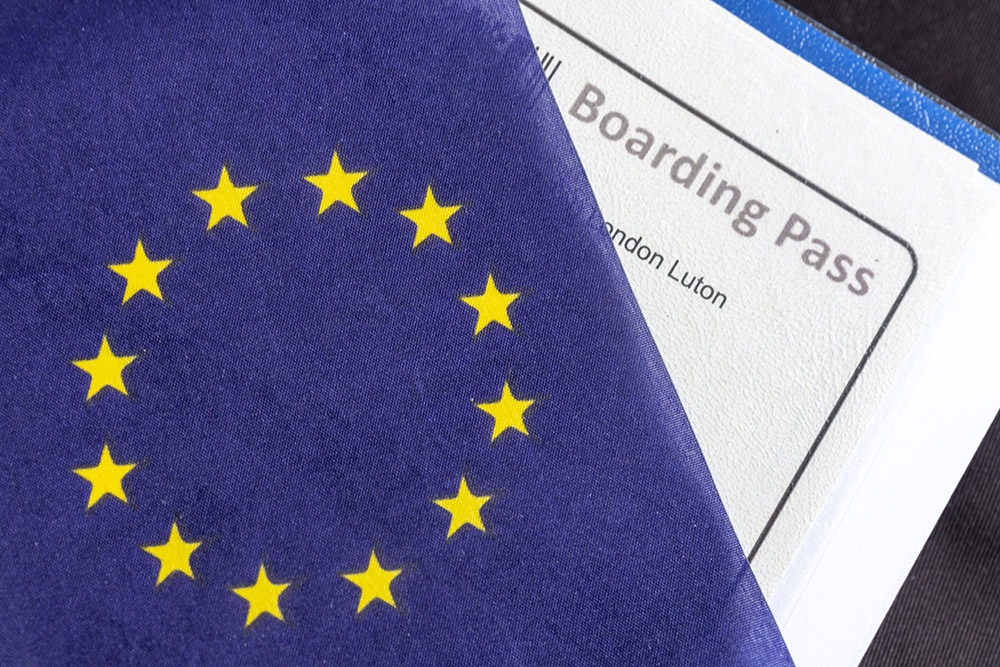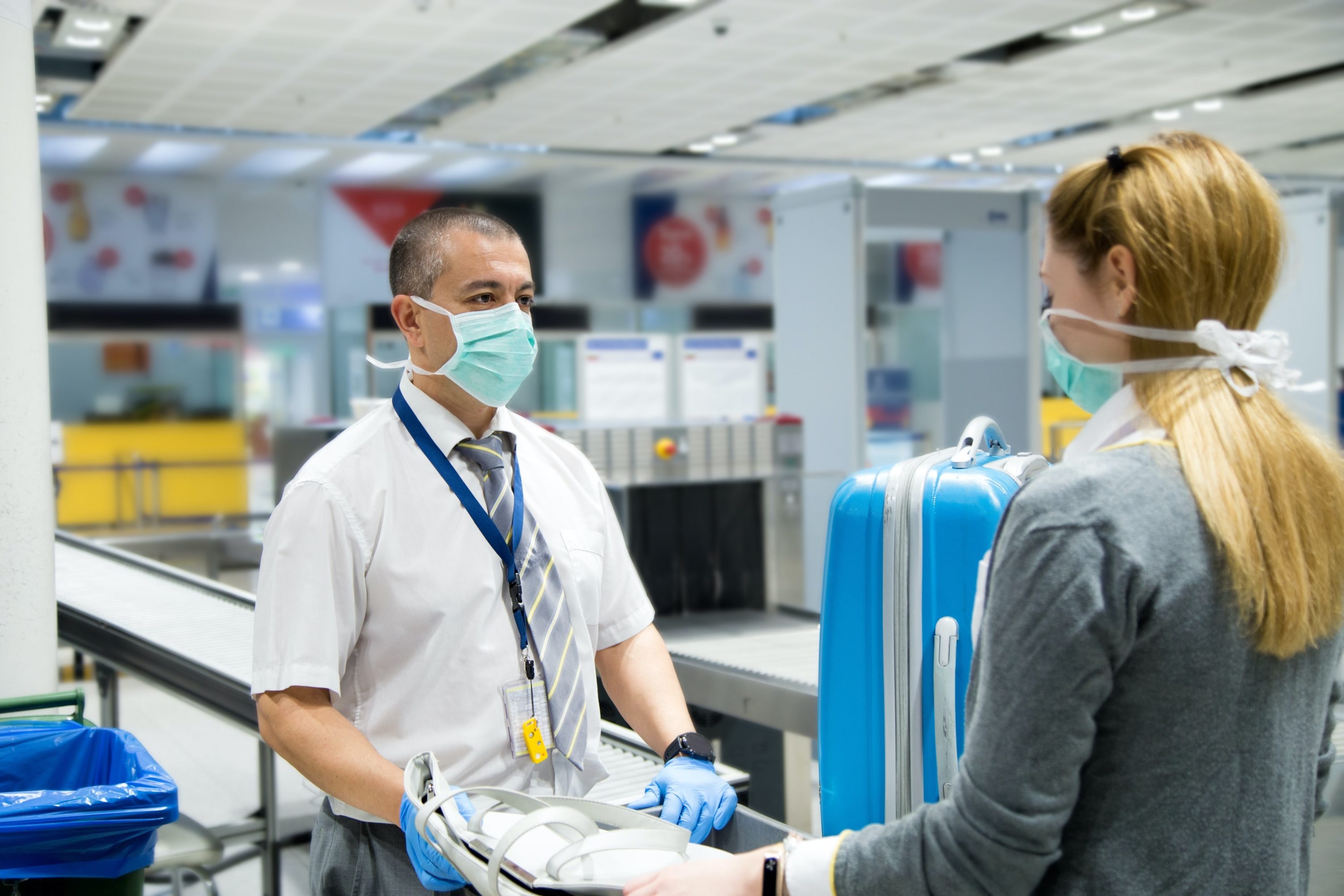GHIC replaces EHIC
European Health Insurance Card replaced by a free Global Health Insurance Card FAQs
Until we left the EU, one of the great things about travelling to Europe was the fact that you could apply for an EHIC card which gave you free emergency medical treatment in European countries. While you can also have insurance, it was so much easier to just show the card than go through all the hurdles with insurance.
On 11 January, the government announced that UK residents will now be able to apply for a UK Global Health Insurance Card (GHIC). This is also great news for those who want to travel in the EU but do not have cover for COVID treatment with their insurance company.
Under Britain’s new agreement with the EU, UK residents’ rights to emergency and medically necessary healthcare will continue when travelling in the EU. This includes medically necessary treatment for a pre-existing or chronic condition.
Minister for Health Edward Argar said:
Our deal with the EU ensures the right for our citizens to access necessary healthcare on their holidays and travels to countries in the EU will continue.
The GHIC is a key element of the UK’s future relationship with the EU and will provide certainty and security for all UK residents.
What does GHIC cover give me?
The GHIC covers medically necessary state-provided healthcare at a reduced cost or, in many cases, free of charge, until your planned return home. Necessary healthcare means healthcare that becomes medically necessary during your stay and for which you cannot reasonably wait until you’re back in the UK to get. This includes medically necessary treatment for a pre-existing or chronic condition. Some treatments will need to be pre-arranged with the relevant healthcare provider in the country you’re visiting, for example, kidney dialysis or chemotherapy.
Can I use the card for long trips? What is a temporary stay?
The card is allowed for “temporary” trips only. A temporary stay is a period during which you are staying in a place other than the one where you usually live and you do not move your main home there or ‘centre of interest’ as the government call it. For example, this can include holiday, study and business travel.
Can I still use my EHIC instead if it is valid?
Current European Health Insurance Cards (EHIC) are valid as long as they are in date and people can continue to use these when travelling to the EU. EU member state EHICs will continue to be accepted by the NHS.
The public only need to apply for their new GHIC when their current EHIC expires. Both cards will offer equivalent protection for emergency and medically necessary healthcare needs when in the EU on a temporary stay, which includes holiday, study, and business travel.
How do I get the new GHIC?
The new GHIC card is free to obtain from the official GHIC website. You should apply at least 2 weeks before they plan to travel to ensure the card arrives on time. Any sites which include a charging fee are in no way affiliated with the official NHSBSA GHIC service.
UK nationals living in the EU, EEA and Switzerland and EU, EEA and Swiss nationals living in the UK, who are eligible under the Citizens’ Rights Agreement for reciprocal healthcare based on current EU regulations, can continue to apply for an EHIC.
Which countries are covered at the moment?
- EU countries
There are also some other countries with reciprocal health arrangements but these have different eligibility requirements and are not part of GHIC:
- Norway
- Australia,
- New Zealand,
- some Crown Dependencies and overseas territories (such as Isle of Mann, Jersey, Gibraltar)
- some Balkan states (Bosnia, Serbia, Montenegro, Kosovo).
Iceland, Liechtenstein or Switzerland are not covered by GHIC currently but the government hope to reach agreement with them. .You can find the individual country details here.
What if I am travelling now without the card?
If a UK resident is travelling without a card, they are still entitled to necessary healthcare and should contact the NHS Business Services Authority (NHS BSA) (which covers the whole of the UK), who can arrange for payment should they require treatment when abroad. A Provisional Replacement Certificate (PRC) can be obtained which will provide the same coverage for healthcare as GHIC or EHIC. The PRC can only be requested at the point of requiring care; it’s not possible to request a PRC in advance of a trip. UK nationals can contact NHSBSA on +44 (0)191 218 1999 should a PRC be required.
Under existing Common Travel Area arrangements with Ireland, UK residents will continue to be able to access necessary healthcare in Ireland by showing proof of residency documentation (such as a UK driving licence, a biometric residence permit, or a Northern Irish medical card) or EHIC or GHIC as used elsewhere in the EU.
Does this mean I no longer need travel insurance?
We always advise that anyone travelling overseas should take out comprehensive travel insurance. If you were very unwell, the GHIC would not cover repatriation if you needed to be flown home. It also would not cover the cost of flights if you missed it because you were unwell. Plus things such as theft, lost luggage and many other items of coverage are worth having.
To help you navigate the changes of business travel, we’ve created the brand-new Traveller Toolkit. This invaluable online resource is packed full of easy-to-use guides and checklists for every stage of every journey. We detail exactly what you need to know and do before, during and after your trip.
You’ll also find innovative and interactive virtual trips, which walk you through each step of being at the airport, on the train and in the hotel. You can even check the travel restrictions and health status of your destination with our comprehensive COVID-19 Country Tracker, updated five times daily to ensure you have the very latest information to help keep you and your travellers safe.
Travel is changing. But with common sense and a good TMC behind you, travellers should have the confidence to once again take to the skies. It’ll soon be business as (un)usual.

